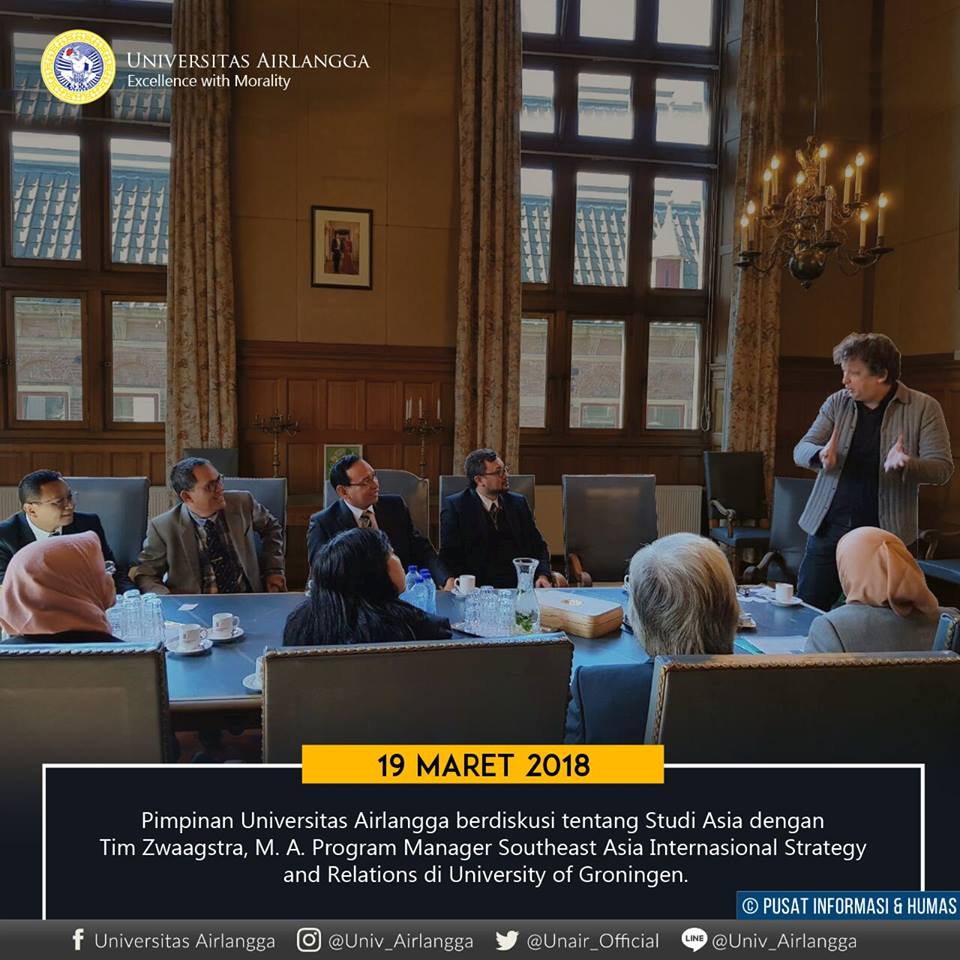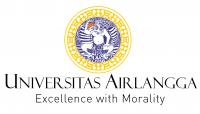Doctoral of Psychology
Vision of Doctoral Program in Psychology Universitas Airlangga
To become an independent, innovative, and leading center for psychology doctoral education regionally and internationally, a pioneer in the development of science, technology and humanities based on religious morality. The vision drives the strategies for improving the education quality in order to win competition with other Doctoral Program in Psychology existing in Indonesia.
Mission of Doctoral Program in Psychology Universitas Airlangga
1. Producing doctors in psychology who are knowledgeable, very competent academically, creative, dynamic, professional and highly competitive.
2. Conducting fundamental, applied and innovative policy research in order to support the development of education and community outreach program.
3. Devoting its expertise in science, technology and humanities to the public.
4. Striving for independence in implementing the Tri Dharma Perguruan Tinggi (Three Principles of Higher Education) through the development of institutional management oriented to quality and ability to compete internationally.
Based on the missions, the Doctoral Program in Psychology Universitas Airlangga will run quality education to produce competitive graduates capable of performing social roles based on their professional competencies. This can be achieved by creating a conducive learning environment that encourages continuous inquiry and learning for both lecturers and students.
Objectives of Doctoral Program in Psychology Universitas Airlangga
The Doctoral Program in Psychology Universitas Airlangga aims to produce graduates who develop:
1. New science and technology concepts in their field of expertise.
2. Fundamental and applied research Programs
3. Interdisciplinary approaches.
Based on these objectives, it can be expected that graduates of the program will be able to conduct, organise and lead research. Research activities are conducted using an interdisciplinary scientific approaches by applying their expertise professionally based on scientific ethics. Thus, the graduates of the program will be able to develop a new concept in their field of science or profession, that is, a new concept which benefits mankind.
A graduate of the Doctoral Program in Psychology Faculty of Psychology Universitas Airlangga is expected to have standard qualifications covering attitudes, knowledge and skills summarized in the following five competencies:
- Ability to master the concepts and theories underlying the science of psychology (Knowledge Base of Psychology Competence).
- Ability to be scientific and critical towards the discipline of psychology and social reality to find solutions to new problems in psychology (Critical Thinking and Application of Psychology Competence).
- Ability to organize and conduct research to develop or find new concepts, models or theories in psychology that are beneficial for mankind (Research Competence).
- Ability to communicate ideas and thoughts scientifically both orally and in writing (Communication Competence).
- Ability to apply psychologist’s code of ethics and to appreciate universal values of humanity (Value in Psychology Competence).
Graduates of the Doctoral Program in Psychology Faculty of Psychology Universitas Airlangga have the right to hold an academic degree of Doctor (Dr.)
CURRICULUM OF DOCTORAL PROGRAM IN PSYCHOLOGY UNIVERSITAS AIRLANGGA
Decree of National Education Minister No. 232/U/2000 and Regulation of Rector of Universitas Airlangga No. 21 Year 2014 on Guidelines on Doctoral Education Programs at Universitas Airlangga stipulate that the study load of doctoral Programs is at least 40 credits for participants who hold a master’s degree of the same field, or at least 52 credits for participants who hold a master’s degree of a different field.
Following this rule, the study load in the 2010 Curriculum is as follows:
- Minimum 43 credits for participants who hold both Bachelor of Psychology and Master of Science in Psychology or Master of Applied Psychology or Master of Professional Psychology.
- Minimum 52 credits for participants who hold both Bachelor of Psychology and a master of non-psychology discipline.
Meanwhile, the study load based on the revised 2016 Curriculum are as follows:
- Minimum 50 credits for participants who hold both Bachelor of Psychology and Master of Science in Psychology or Master of Applied Psychology or Master of Professional Psychology.
- Minimum 52 credits for participants who hold both Bachelor of Psychology and a master of non-psychology discipline.
Intakes
- Jan Deadline: June
Application Processing Time in Days: 30
Minimum English Language Requirements
| English Level Description | IELTS (1.0 -9.0) | TOEFL IBT (0-120) | TOEFL CBT (0-300) | PTE (10-90) | |
|---|---|---|---|---|---|
| Expert | 9 | 120 | 297-300 | 86-90 | |
| Very Good | 8.5 | 115-119 | 280-293 | 83-86 | |
| Very Good | 8 | 110-114 | 270-280 | 79-83 | |
| Good | 7.5 | 102-109 | 253-267 | 73-79 | |
| Good | 7 | 94-101 | 240-253 | 65-73 | |
| Competent | 6.5 | 79-93 | 213-233 | 58-65 | |
| Competent | 6 | 60-78 | 170-210 | 50-58 | |
| Modest | 5.5 | 46-59 | 133-210 | 43-50 | |
| Modest | 5 | 35-45 | 107-133 | 36-43 | |
| Limited | 4 | 32-34 | 97-103 | 30-36 | |
| Extremely Limited | < 4 | < 31 | < 93 | < 30 |
Admission Requirement / Eligibility Criteria
1. Copy of passport (showing the applicant's picture and the date of issuance and expiration) 2. Copy of official academic transcript 3. Copy of the latest academic certificate/degree 4. English proficiency certificate (TOEFL (PBT/IBT), TOEIC, IELTS, Cambridge Test) 5. Passport sized photographs 6. Health certificate 7. Academic recommendation letter 8. Curriculum Vitae (max. 2 pages) 9. Guarantee statement in form of a bank statement (indicating financial ability to undertake education within Indonesia) 10. Research Proposal or Study Plan
- Course Type: Full Time
- Course Level: Doctoral Degree/PhD
- Duration: 04 Year
-
Total Tuition Fee:
50000000 IDR
Annual Cost of Living: N/A
Application Fee: N/A

